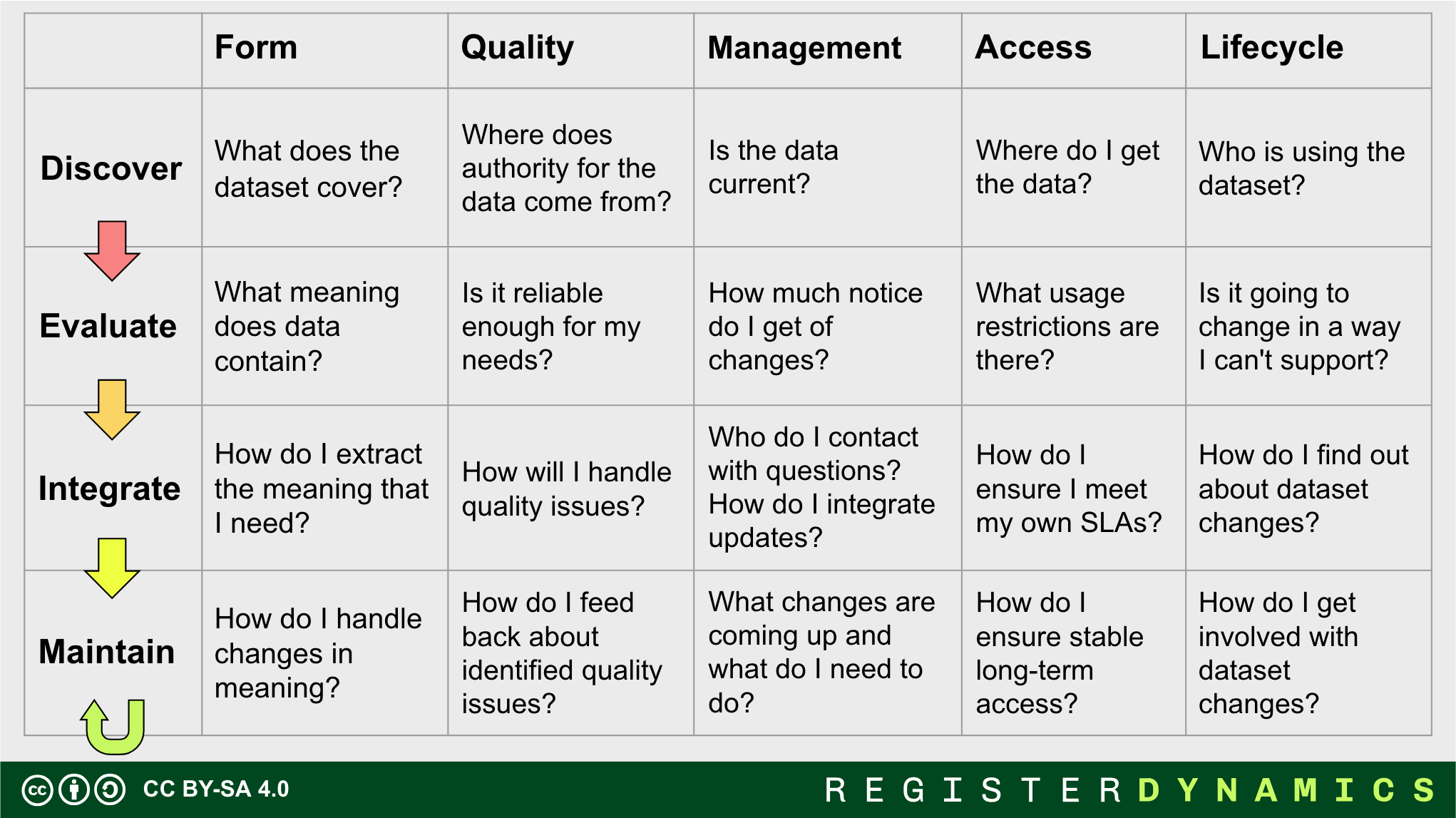Blog
Welcome to the Register Dynamics Blog! Here we share our experiences and lessons learnt from our work with data in government, business, and beyond. From practical tips to reflections on projects we’re passionate about, our Insights show how we put people first and let data do the work—offering inspiration and fresh perspectives for clients, partners, and the wider data community.
For talks and deeper research, see our Talks and Publications and Press.
Why services suck at spreadsheets
We've seen the challenges that pop up when relying on spreadsheet templates and the resulting frustration from users when they are forced to grapple with submitting their data using one.
We've come to a worrying conclusion: asking users to fill out spreadsheet templates in the way we do it today does not meet user needs and should not be used as a design pattern in usable and accessible government services.
What Does a Data Architect Do?
This article aims to clarify what we believe the key aspects of being a Data Architect are, based on our experience, shedding light on the various skills and tasks that data architects undertake to enable effective data utilisation and decision-making.
Six Steps to Success as a Chief Data Officer
A Chief Data Officer (CDO) is a senior executive who is responsible for how the organisation utilises and governs their data. Let’s take a look at some of the biggest challenges Chief Data Officers face and how to ensure success in this important role
What are the Big Challenges in Data Migration?
Whenever you work with data, you will invariably want to move it somewhere, be it to a different location, application or even just a different format. With this process there can be a variety of challenges and so in this article, we will walk through four of the main challenges when dealing with data migration.
CDO as a service: The next data evolution
CDO as a service is a cost effective and flexible way to support senior-level leadership with data expertise. Find out more about what this new service is and how it can help you to capitalise on your organisation’s data assets, become more data-driven and to stay ahead of the competition.
How to Overcome the Biggest Data Governance Mistakes in Startups
In this article we focus on some of the common issues that we’ve seen appear specifically in startup organisations. Here are our 4 top tips on how to overcome the biggest data governance mistakes startups often make.
7 Key Benefits of Data Governance
If you work with data, you will surely have a view on data governance and its importance to an organisation’s success. A well-crafted data governance strategy is vital in today’s fast-moving and competitive market. In an earlier article, we explored what data governance is and why it is important. Now, let’s look at some of the key benefits of data governance.












